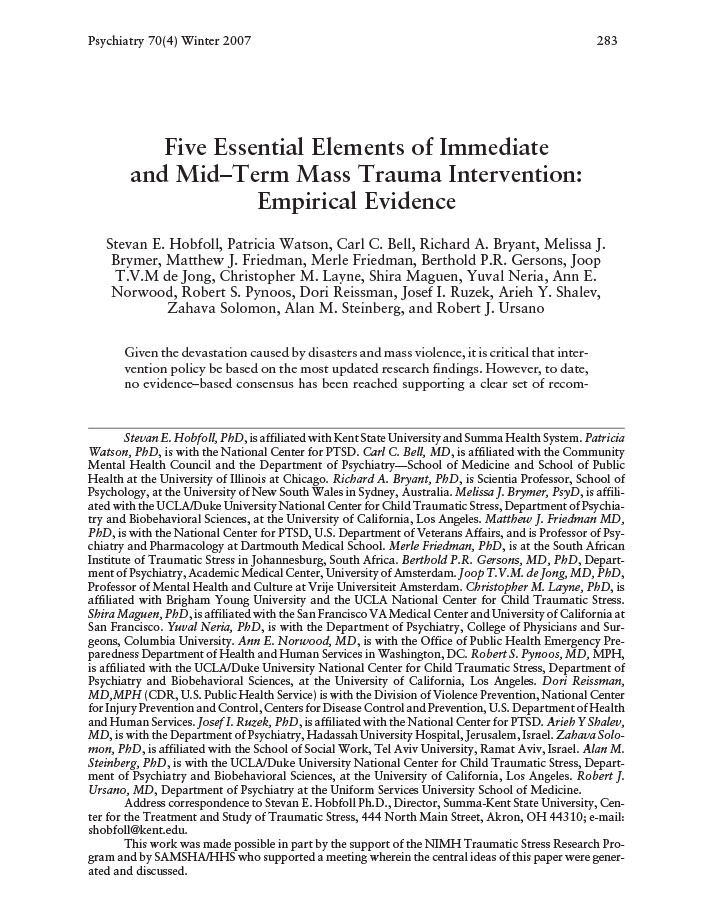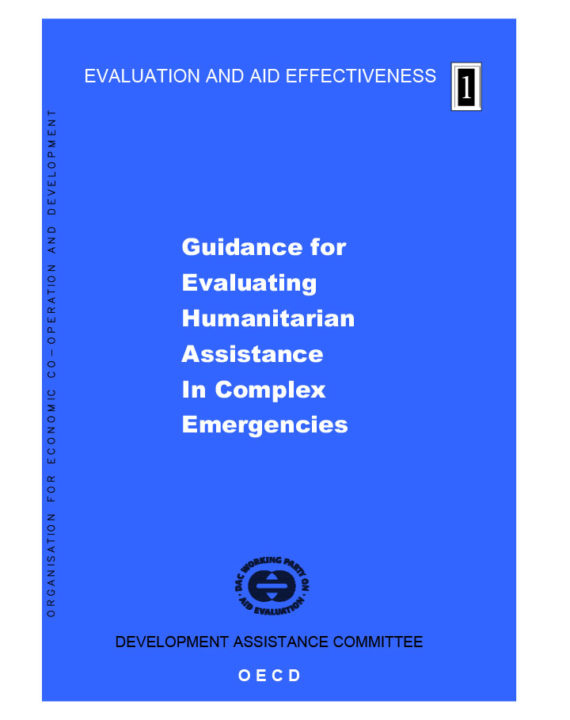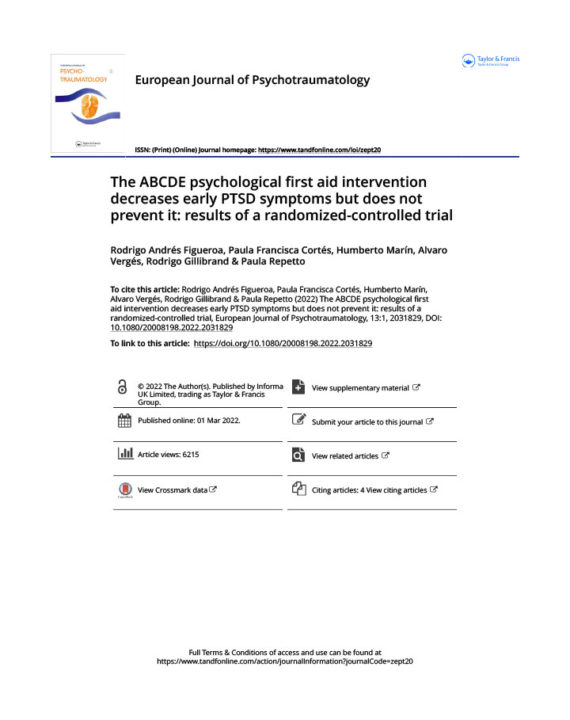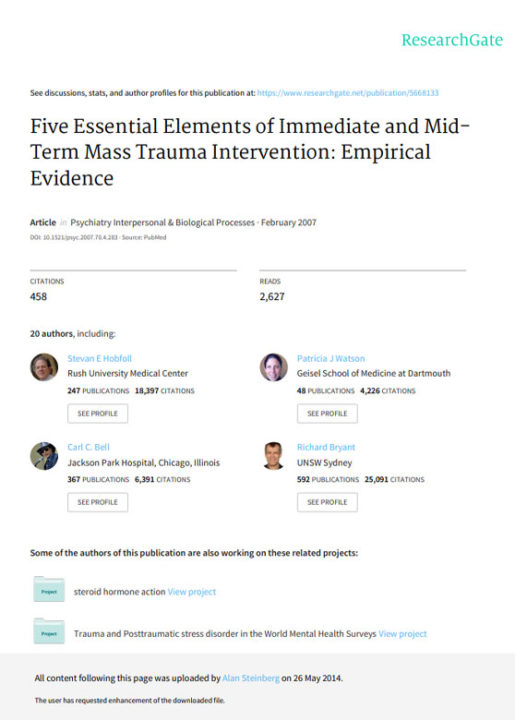Given the devastation caused by disasters and mass violence, it is critical that intervention policy be based on the most updated research findings. However, to date, no evidence-based consensus has been reached supporting a clear set of recommendations for intervention during the immediate and the mid-term post mass trauma phases. Because it is unlikely that there will be evidence in the near or mid-term future from clinical trials that cover the diversity of disaster and mass violence circumstances, we assembled a worldwide panel of experts on the study and treatment of those exposed to disaster and mass violence to extrapolate from related fields of research, and to gain consensus on intervention principles. We identified five empirically supported intervention principles that should be used to guide and inform intervention and prevention efforts at the early to mid-term stages. These are promoting: 1) a sense of safety, 2) calming, 3) a sense of self- and community efficacy, 4) connectedness, and 5) hope.
guides_tools
Five Essential Elements of Immediate and Mid–Term Mass Trauma Intervention: Empirical Evidence
Information
English
2024
pdf
Translations
No translations available






